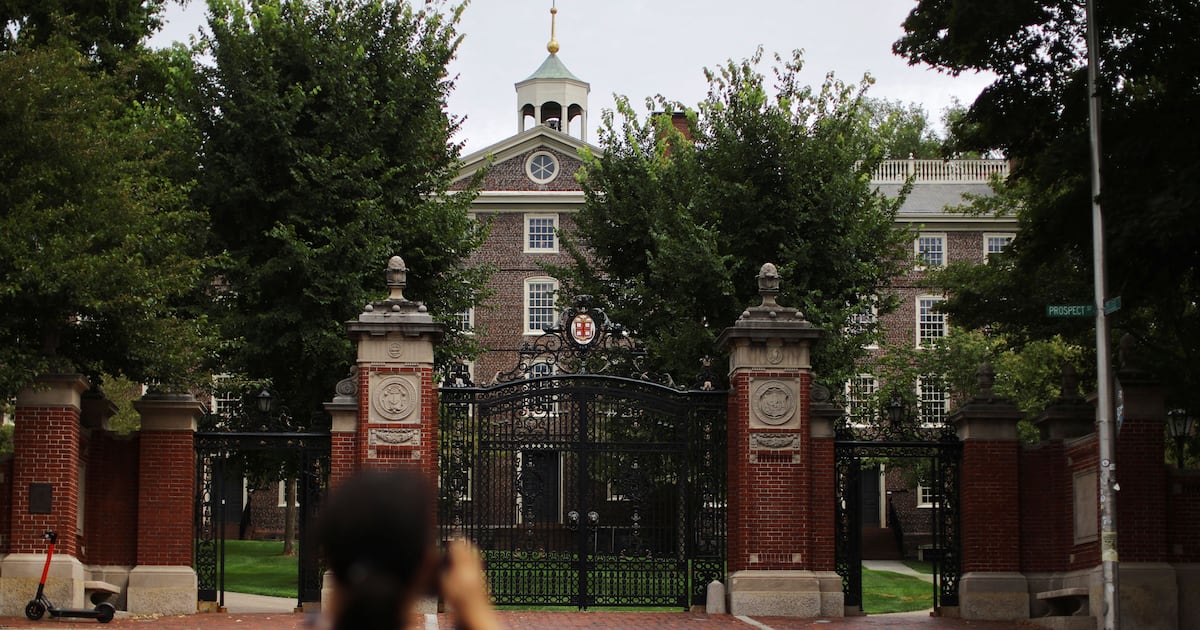Education
Seven Universities Reject Trump Administration’s Funding Compact

The ongoing debate over academic freedom in the United States intensified as seven universities have formally declined a funding compact proposed by the Trump administration. The offer, which aimed to incentivize schools to adopt specific policy changes in exchange for preferential access to federal funding, has drawn criticism and concern among several institutions.
The University of Arizona became the latest institution to reject the proposal on October 10, 2023. In a letter addressed to Secretary of Education Linda McMahon, University President Suresh Garimella emphasized the school’s commitment to merit-based competition for federal research funding, stating, “We seek no special treatment.” This decision follows the University of Virginia’s rejection of the compact just days earlier, after a meeting with White House officials.
The compact, sent to nine universities in early October, calls for significant changes to admissions policies, including the elimination of considerations based on sex and ethnicity, and a cap on international student enrollments. The universities that received the offer include Vanderbilt University, University of Pennsylvania, Dartmouth College, University of Southern California, Massachusetts Institute of Technology, University of Texas at Austin, and Brown University.
University of Arizona is not alone in its refusal; other institutions, such as MIT, Penn, Brown University, Dartmouth College, and USC, have also opted out. Each institution has cited concerns about compromising their academic principles and governance in exchange for federal funding.
Details of the Proposed Compact
The Trump administration’s compact is designed to encourage a “vibrant marketplace of ideas” on campus. The letter sent to universities outlined demands for reforms, including assessments of faculty and staff viewpoints and the adoption of specific definitions of gender. Furthermore, the compact requires universities to commit to “grade integrity,” establish a five-year freeze on tuition costs, and limit international students to 15% of the total enrollment.
Institutions that agree to the compact would receive priority for federal grants, invitations to White House events, and opportunities for discussions with administration officials. However, compliance would be monitored through annual anonymous polls among faculty, students, and staff to assess adherence to the agreement.
Institutional Responses and Implications
The response from the universities indicates a strong resistance to federal oversight and ideological mandates. Dartmouth College President Sian Leah Beilock articulated the need for institutions to govern themselves in accordance with their missions, stating that the compact could undermine academic freedom. Similarly, USC Interim President Beong-Soo Kim expressed concerns that linking research benefits to the compact would erode the values of free inquiry and academic excellence.
The refusal to sign the compact comes against a backdrop of increasing tensions between higher education institutions and the current administration. Since the beginning of the Trump presidency, universities have faced a series of funding disputes and political pressures. A recent analysis indicated that the universities targeted by the Trump administration have substantially increased their lobbying efforts, spending 122% more in the second quarter of this year compared to the previous year.
Despite the rejections, the University of Texas at Austin has not yet disclosed its stance on the compact, instead expressing interest in potential collaboration with the administration.
The implications of this ongoing dispute extend beyond funding. As universities navigate these pressures, the broader conversation surrounding academic freedom, institutional autonomy, and the role of government in higher education remains critical.
-

 Science2 months ago
Science2 months agoToyoake City Proposes Daily Two-Hour Smartphone Use Limit
-

 Health2 months ago
Health2 months agoB.C. Review Reveals Urgent Need for Rare-Disease Drug Reforms
-

 Top Stories2 months ago
Top Stories2 months agoPedestrian Fatally Injured in Esquimalt Collision on August 14
-

 Technology2 months ago
Technology2 months agoDark Adventure Game “Bye Sweet Carole” Set for October Release
-

 World2 months ago
World2 months agoJimmy Lai’s Defense Challenges Charges Under National Security Law
-

 Technology2 months ago
Technology2 months agoKonami Revives Iconic Metal Gear Solid Delta Ahead of Release
-

 Technology2 months ago
Technology2 months agoSnapmaker U1 Color 3D Printer Redefines Speed and Sustainability
-

 Technology2 months ago
Technology2 months agoAION Folding Knife: Redefining EDC Design with Premium Materials
-

 Technology2 months ago
Technology2 months agoSolve Today’s Wordle Challenge: Hints and Answer for August 19
-

 Business2 months ago
Business2 months agoGordon Murray Automotive Unveils S1 LM and Le Mans GTR at Monterey
-

 Lifestyle2 months ago
Lifestyle2 months agoVictoria’s Pop-Up Shop Shines Light on B.C.’s Wolf Cull
-

 Technology2 months ago
Technology2 months agoApple Expands Self-Service Repair Program to Canada









